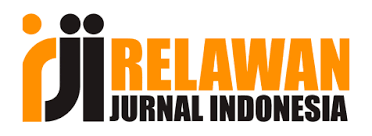Integrating English Skills Competitions into the Curriculum and Students' Oral English Abilities
DOI:
https://doi.org/10.58557/(ijeh).v4i4.273Kata Kunci:
College Students, Incorporating into Curriculum, Integration of Skills Competitions, Language Learning, Speaking Skills in EnglishAbstrak
This study investigates the integration of Skills Competitions and Oral English Expression Abilities among Liaocheng Vocational and Technical College, Shandong, China students. The primary issue addressed is the level of integration of English skills competitions into the curriculum and its impact on students' oral English expression abilities. This research aims to evaluate the extent to which English skills competitions have been incorporated into the learning process and to explore the relationship between the level of integration and students' oral English expression abilities. The study employed a descriptive-correlational research design, utilizing a survey questionnaire to collect student data. Descriptive statistics and correlation analysis were conducted to analyze the collected data. The findings indicate that integrating English skills competitions into the curriculum can significantly enhance students' oral English expression abilities, particularly in idiomatic usage and overall communicative competence. The positive impact largely depends on careful implementation that balances competitive activities with other pedagogical methods. The study recommends that educators ensure these competitions are designed to be inclusive and are part of a broader, well-rounded approach to language learning. In this way, English skills competitions can effectively improve students' oral language abilities, provided they are balanced and aligned with comprehensive pedagogical approaches
Referensi
Byram, M. (2019). Teaching and assessing intercultural communicative competence. Multilingual Matters.
Chen, X., & Liu, J. (2023). Designing competition tasks for real-world relevance in English language education. Journal of Pedagogical Research, 21(1), 35-50.
Chen, Y., & Xu, P. (2020). Project-based learning in language education: Developing critical thinking and engagement. Journal of Educational Research, 33(4), 410-423.
Cheng, L. (2020). Communicative language testing. In E. Hinkel (Ed.), Handbook of research in second language teaching and learning (Vol. III, pp. 286-302). Routledge.
Chomsky, N. (2019). Language and mind. Cambridge University Press.
Council of Europe Language Policy Portal. (2022). Retrieved from https://www.coe.int/en/web/language-policy
Coyle, D., Hood, P., & Marsh, D. (2019). CLIL: Content and language integrated learning. Cambridge University Press.
Crystal, D. (2003). English as a global language. Cambridge University Press.
Deardorff, D. K. (2016). Identification and assessment of intercultural competence as a student outcome of internationalization. Journal of Studies in International Education, 10(3), 241-266.
Dörnyei, Z. (2015). The psychology of the language learner revisited. Routledge.
Dörnyei, Z., & Ushioda, E. (2009). Motivation, language identity and the L2 self. Multilingual Matters.
Ellis, R. (2018). Sociocultural competence and language learning: An introduction. TESOL Quarterly, 52(2), 389-411.
Ellis, R. (2019). Task-based language learning and teaching. Oxford University Press.
Freeman, D., & Johnson, K. E. (2018). Reconceptualizing the knowledge-base of language teacher education. Routledge.
Gardner, R. C. (1985). Social psychology and second language learning: The role of attitudes and motivation. Edward Arnold.
Graddol, D. (2006). English next: Why global English may mean the end of 'English as a foreign language'. British Council.
Hattie, J., & Timperley, H. (2017). The power of feedback. Review of Educational Research, 77(1), 81-112.
Hughes, A. (2018). Testing for language teachers (2nd ed.). Cambridge University Press.
Jiang, Y., & Deng, Y. (2019). The effect of task repetition on EFL learners' oral fluency: A longitudinal study. Innovation in Language Learning and Teaching, 13(3), 211-224.
Kaplan, R. B., & Baldauf Jr, R. B. (2013). Language planning from practice to theory. Multilingual Matters.
Ke, X., & Xue, L. (2007). Vocational education and training in China: Reform and development. Asia Pacific Education Review, 8(1), 105-115.
Koch, I., & Gobert, J. (2010). The effects of competitions on critical thinking and problem-solving skills. Journal of Educational Psychology, 102(4), 758-766.
Kramsch, C. (2019). Culture in foreign language teaching. Routledge.
Lave, J., & Wenger, E. (1991). Situated learning: Legitimate peripheral participation. Cambridge University Press.
Li, F., & Chen, X. (2020). Aligning language education with student interests and career aspirations. Language Education Quarterly, 29(1), 67-81.
Li, J. (2017). Contextualization in English as a foreign language (EFL) textbook: A comparative study of English textbooks in China and Australia. Cogent Education, 4(1), 1302349.
Li, J. (2021). Authentic materials in language education: Bridging classroom and real-life communication. Applied Linguistics, 32(3), 372-386.
Li, S., & Zhang, W. (2020). Enhancing feedback mechanisms in language competitions to improve student engagement. Journal of Applied Linguistics, 13(2), 143-159.
Li, Y., & Chen, Y. (2020). The effect of vocabulary learning strategies training on EFL learners' vocabulary retention and recall: A comparative study. Innovation in Language Learning and Teaching, 14(3), 297-310.
Liang, M., & Zhang, Y. (2019). The impact of English listening competitions on college students' listening ability in China. Theory and Practice in Language Studies, 9(4), 383-387.
Littlewood, W. (2004). The task-based approach: Some questions and suggestions. ELT Journal, 58(4), 319-326.
Liu, M. (2019). Integrating industry professionals into educational frameworks: The impact on learning relevance. Vocational and Technical Education Journal, 35(1), 43-56.
Liu, T., & Wang, G. (2021). Encouraging student-led initiatives in language learning: Impact on engagement and motivation. Journal of Educational Studies, 54(4), 579-590.
Muir, D. J. (2001). Adapting online education to different learning styles. ERIC Weinstein Publications. Retrieved from https://files.eric.ed.gov/fulltext/ED462940.pdf
Nunan, D. (1991). Language teaching methodology: A textbook for teachers. Prentice Hall.
Richards, J. C. (2015). Key issues in language teaching. Cambridge University Press.
Robinson, P. (2001). Cognition and second language instruction. Cambridge University Press.
Rodgers, T. S., McDonough, K., & Popova, A. (2019). Designing language courses: A guide for teachers. Routledge.
Stern, H. H. (1983). Fundamental concepts of language teaching. Oxford University Press.
Tomlinson, B. (2020). Materials development in language teaching. Cambridge University Press.
Vygotsky, L. S. (1978). Mind in society: The development of higher psychological processes. Harvard University Press.
Wang, H., & Chen, W. (2018). Task-based English listening teaching in senior high schools. Journal of Shandong Foreign Language Teaching, 3, 68-71.
Wang, J. (2019). Gender differences in English learning and language competence. Foreign Language Education in China, 6(1), 24-36.
Wang, P., & Huang, F. (2022). Integrating extracurricular activities with regular curriculum in language education. Journal of Language Education Research, 36(3), 402-419.
Wang, Q., & Li, Y. (2019). Collaborative learning environments in language education: A review of peer review mechanisms. Journal of Language Teaching, 27(3), 325-342.
Wang, S., & Li, H. (2018). The role of practical scenarios in enhancing English language skills. Journal of Modern Language Learning, 23(2), 150-162.
Wang, Y., et al. (2020). The relationship between Chinese EFL learners' beliefs about English learning and their oral English proficiency. The Language Learning Journal, 48(3), 317-333.
Wong, R. (2005). The educational benefits of competitions in English language learning. English Language Teaching Journal, 59(2), 114-121.
Wu, X., & Jiang, X. (2019). How do Chinese university students' oral proficiency develop over time? A longitudinal study. System, 82, 76-89.
Xu, W., et al. (2022). The roles of motivation, anxiety, and learning strategies in online Chinese learning among Thai learners of Chinese as a foreign language. Frontiers in Psychology. Retrieved from https://www.frontiersin.org/journals/psychology/articles/10.3389/fpsyg.2022.962492/full
Yang, H., et al. (2020). The application of task-based language teaching in college English teaching. Modern Education Science, 7, 63-65.
Yang, L., & Zhang, M. (2018). Recognition and rewards systems in English language competitions: Effects on student motivation. Language Teaching Journal, 50(1), 88-101.
Zhang, L., & Hu, J. (2022). Interactive formats in language competitions: A pathway to active engagement. Journal of Educational Practice, 40(2), 218-229.
Zhang, W. (2017). English language education and real-world contexts: Bridging theory and practice. Journal of Education, 47(3), 298-312.
Zhao, W., & Liu, R. (2017). Gamification in English learning: Enhancing student engagement and motivation. Language and Education, 31(6), 546-558.
Unduhan
Diterbitkan
Cara Mengutip
Terbitan
Bagian
Lisensi
Hak Cipta (c) 2024 Du Ruixue; Princess Policarpio

Artikel ini berlisensiCreative Commons Attribution-ShareAlike 4.0 International License.














